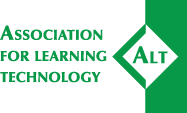Kreps, David (2008) How the web continues to fail people with disabilities. In: ALT-C 2008 Rethinking the digital divide, 9 - 11 September 2008, Leeds, UK.
|
PDF
Available under License Creative Commons Attribution Non-commercial No Derivatives. Download (160kB) | Preview |
Abstract
The digital divide is most often understood as that between the IT haves and have-nots. However, if there is one minority group that can be, and often is excluded from the world wide web, even if they have a computer, it is disabled people. The Special Educational Needs and Disabilities Act 2001 (SENDA) extended the provisions within the Disability Discrimination Act 1995 regarding the provision of services to the education sector. Yet accessible web design, dependent on professional coding standards, adherence to guidelines, and user testing, remains rare on the web. This paper examines the background to professional coding standards, and adherence to guidelines, in an attempt to find out why the web continues to fail people with disabilities. It begins by examining the progress of the transition in the 1990s from old style HTML to strict XHTML. It applauds the vision behind that transition, charts its progress identifying the principle constituencies that it involves – and how well each has played its part. It then focuses on the further problem of the requirement for user testing to iron out anomalies not covered by standards and guidelines. It concludes that validating XHTML code is desirable, but that user testing also needs to be undertaken. It identifies the complex and heterogeneous network of interrelated concerns through which the needs of disabled web users remain unheeded. To support its argument, the paper details the results of two studies – 1) of the homepages of 778 public bodies and blue chip companies, which found only 8% of homepages validated against any declared Document Type Declarations (DTD), and 2) a wider research project on employment websites which also included disabled user testing and a number of focus groups and interviews with disabled users and web development companies.
| Item Type: | Conference or Workshop Item (Paper) |
|---|---|
| Subjects: | T Technology > T Technology (General) L Education > L Education (General) |
| Divisions: | ALT-C Conference > ALT-C 2008 |
| Depositing User: | Miss M Jones |
| Date Deposited: | 08 Jun 2009 14:28 |
| Last Modified: | 04 Apr 2011 09:08 |
| URI: | http://repository.alt.ac.uk/id/eprint/437 |
Actions (login required)
 |
View Item |
